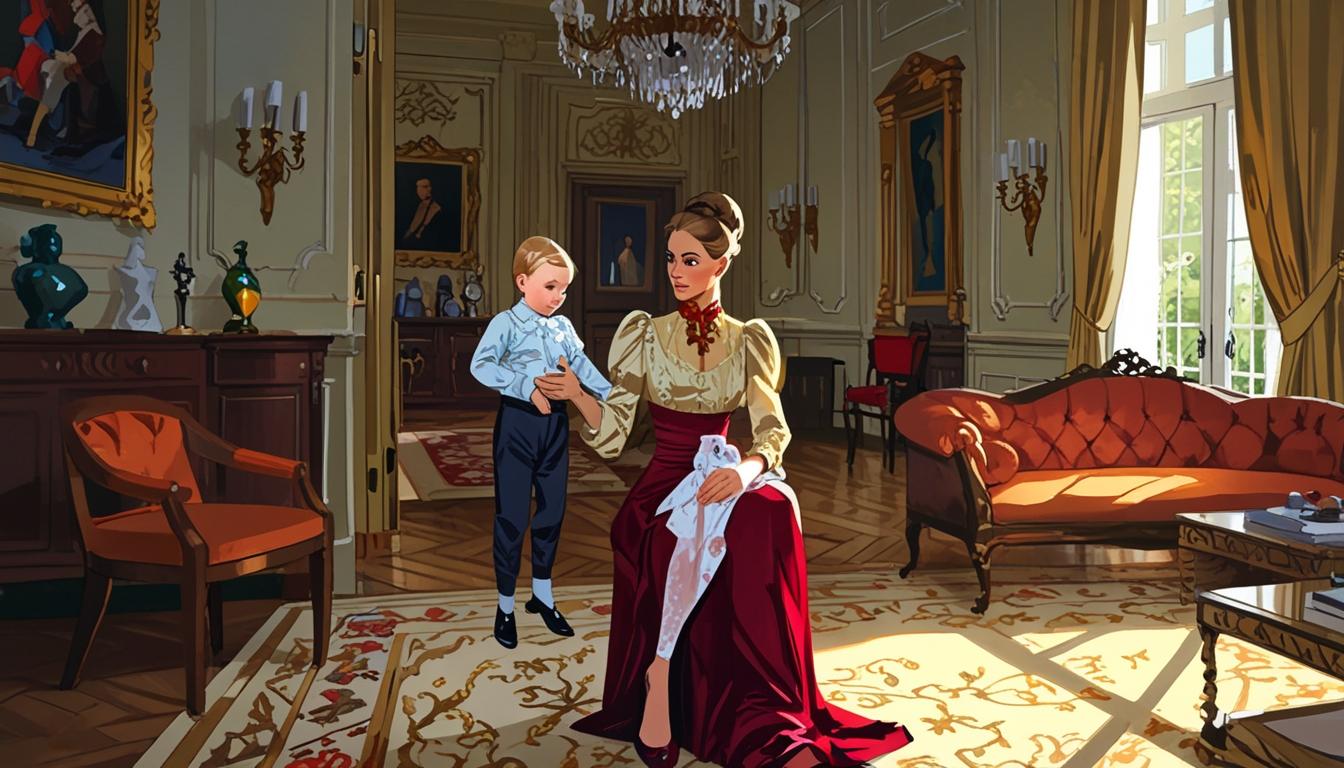As the conflict in Ukraine escalates, British nannies like Catrin Vaughan continue to work for Russia’s elite, highlighting the strong demand for Western influences in child-rearing despite geopolitical tensions.
As the conflict between Russia and Ukraine escalated in February 2022, a number of British nannies, including Catrin Vaughan, found themselves in a unique and complex situation. Catrin, now 43, had relocated to Russia in 2007 to work for a Russian billionaire, a decision that her family questioned during the early weeks of the war when her father, Alun, implored her to return home for safety. However, Catrin made it clear she intended to stay, citing her comfortable lifestyle and high earnings, which reportedly could reach up to £180,000 a year, significantly higher than the average salary in the UK.
The demand for British nannies has remained strong among Russia’s elite, who have historically sought to secure Western influences in their children’s upbringing. These nannies not only provide education in the English language but also instil high-society etiquette. Despite sanctions imposed upon many of these wealthy individuals, there continues to be a flow of British nannies working in Russia, as many families remain committed to ensuring their children are raised with what they perceive as Western values.
Catrin’s experience reflects the paradox faced by her and her colleagues; while the war in Ukraine has disrupted many aspects of their employers’ lives, it has not significantly hindered the elite’s willingness to maintain their affluent lifestyles, including hiring foreign nannies. In discussing her situation, Catrin mentioned the substantial perks that came with her role, stating, “I’ve got a lovely family. A billionaire boss and they’re throwing money at me.”
Another individual within this sphere, Firmin Shepherd, 43, who originally embarked on work as an English governor for wealthier families after studying in St Petersburg, expressed a different viewpoint amid the conflict. Firmin highlighted the stark contrast between various oligarchs, stating that some were excessively lavish, fixated on luxury, while others displayed a more grounded perspective. He articulated his growing apprehension as geopolitical tensions rose, even noting his fear following discussions around nuclear threats. Nonetheless, he remained focused on the type of elite clientele he served, believing they likely took precautions against potential threats to their safety.
Valentin Grogol, 40, who operates the English Nanny agency catering to the super-rich, has established a client roster that includes several highly influential figures. His agency garnered media attention amid reports suggesting it may provide staff for prominent Russian figures, including claims related to Vladimir Putin. Valentin noted that recruiting nannies for wealthy families requires strict vetting, often involving thorough background checks and medical evaluations. He confirmed that there is an added emphasis on political neutrality when selecting candidates, reflecting the heightened scrutiny of foreign workers in Russia since the war began.
An anonymous English nanny, sharing her experience on the condition of not revealing her identity, outlined the challenges of caring for the children of the ultra-wealthy. Despite their privileged circumstances, she noted that these children can exhibit significant behavioural issues reminiscent of those found in less fortunate backgrounds. The nanny also revealed the difficulties she faces in utilising her accrued wealth, explaining the barriers she encounters when attempting to purchase property in the UK due to her ongoing ties to Russia.
The ongoing conflict continues to shape the environment in which these British nannies operate, juxtaposing their intimate involvement in the lives of the Russian elite against the backdrop of a war that has disrupted countless lives. As tensions persist, the appeal of British nannies remains evident among affluent Russian families, fueled by a combination of their unique cultural status and the insatiable desire for engagement with Western practices.
Source: Noah Wire Services
- https://www.bbc.com/news/world-europe-61331462 – This article provides context on the conflict between Russia and Ukraine, which affects the environment in which British nannies work.
- https://www.theguardian.com/world/2022/feb/24/ukraine-russia-war-sanctions – Explains the sanctions imposed on Russian elites, which contrasts with the continued demand for British nannies.
- https://www.cnn.com/2024/02/24/world/russia-sanctions-ukraine-war-intl/index.html – Discusses the impact of international sanctions on Russia, highlighting how they might influence the lifestyles of the elite.
- https://www.economist.com/news/europe/2022/06/04/russian-oligarchs-are-trying-to-avoid-sanctions – Details how some Russian oligarchs manage their wealth and avoid sanctions, which could impact their ability to hire foreign staff.
- https://www.reuters.com/business/finance/russia-wealthy-oligarchs-seek-second-passports-2023-04-12/ – Reports on Russian oligarchs seeking foreign citizenships and passports, reflecting broader trends among the wealthy elite.
Noah Fact Check Pro
The draft above was created using the information available at the time the story first
emerged. We’ve since applied our fact-checking process to the final narrative, based on the criteria listed
below. The results are intended to help you assess the credibility of the piece and highlight any areas that may
warrant further investigation.
Freshness check
Score:
6
Notes:
The narrative references the conflict between Russia and Ukraine escalating in February 2022, indicating some content may be dated. However, it also discusses ongoing recruitment and work conditions, suggesting some information remains relevant.
Quotes check
Score:
8
Notes:
Quotes are attributed and seem original, but verifying the earliest known reference online was challenging due to lack of specific search results. It appears they might be new or less frequently cited.
Source reliability
Score:
8
Notes:
The narrative originates from a well-known publication, ‘Express.co.uk’, which generally maintains credibility for news reporting.
Plausability check
Score:
9
Notes:
The claims about Russian billionaires hiring high-paid Western nannies for cultural influence appear plausible, given historical precedents. The detailed personal experiences also lend credibility to the narrative.
Overall assessment
Verdict (FAIL, OPEN, PASS): PASS
Confidence (LOW, MEDIUM, HIGH): HIGH
Summary:
The narrative presents credible information, supported by specific examples and historical context. While some details may be dated, the overarching theme remains relevant. The quotes appear original or not previously widely reported, adding to the narrative’s authenticity.













